#learning hangul was the real test
Explore tagged Tumblr posts
Text
Incurred/acquired dyslexia (i.e. from trauma/concussion) isn't just spelling words wonky when you're tired and not being able to process an uninterrupted string of numbers that surpasses three digits. It's also regularly, and without realizing it, calling ramekins as macrames because the consonant weight feels like the same word in your brain-mouth until one day you can't think of either word and you ask your fiance and then both go look it up, only to realize your fiance now calls the ramekin a macrame. Now you have to explain how that's your bad, the plants hanging in the window things are macrame, sorry for being mean about it that one time.
#dyslexia#dyscalculia#it's also writing capital M for B#and then singing that stupid m to the b song while you scribble it out#staring at a notebook and wondering why you thought writing it would be a good idea in the first place#ramekin#macrame#I see no difference#I've actually healed a lot#I can finally write the word people#like with a pen#I do say it in German in my head#different languages come with different problems#learning hangul was the real test#It took me three years#An Ajumma got mad at me for reviewing the same textbook page for weeks on the bus in San Diego#She was so cute though#She didn't even make fun of me when I proudly sounded out the Hangul of Zion Market#It said 'Zion Market'
1 note
·
View note
Photo
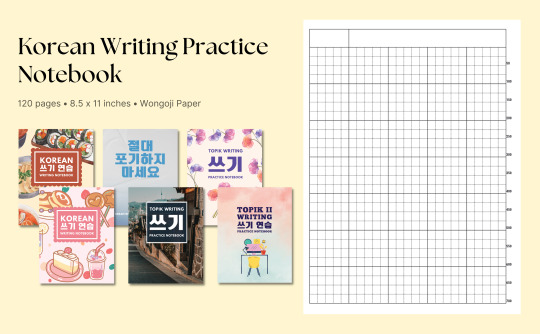
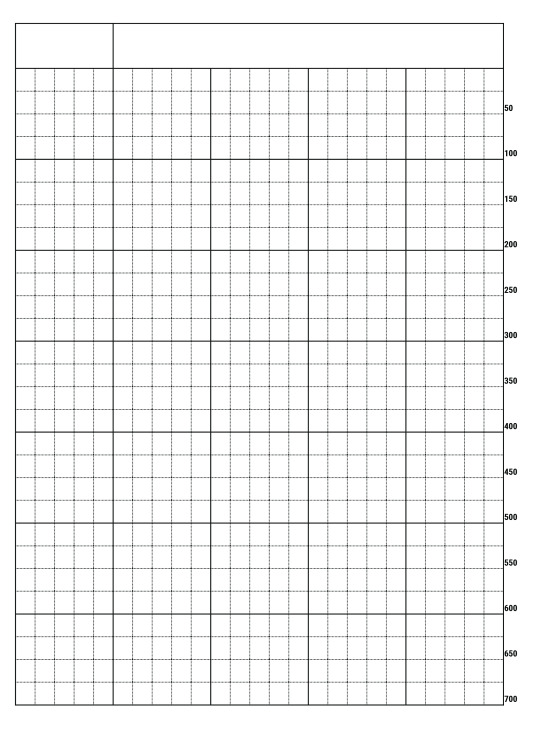
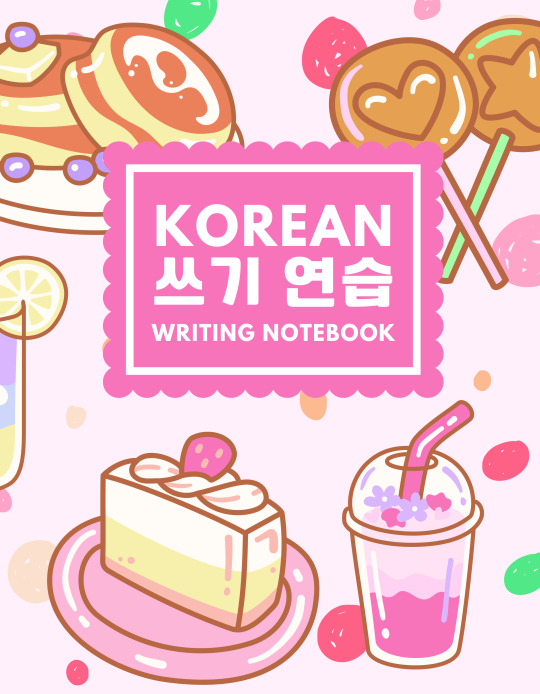

Korean Writing Practice Notebook
This Korean Writing Practice Notebook is a great choice for practicing Korean handwriting if you are learning Korean or preparing for the Topik test. There are 120 pages of Hangul Manuscript Papers, also known as Wongoji Papers. The pages are designed similarly to real Topik test papers. Therefore, this notebook will be useful for anyone who starts working on your Korean essay writing skills
A wonderful present for family and friends who learning Korean handwriting or preparing for Topik Test.
Product Details
Total 120 pages of Wongoji papers.
White Paper
Matte Finish Cover
Buy Here
Thank you for supporting me ❤️❤️❤️
#Korean Language#Korean Learning#Learn Korean#Korean Notebook#Korean Writing Notebook#Korean Writing Practice Notebook#Hangul#Topik#Topik Test#한국어단어#한국어 배우기#한국어배우기#한국어능력시험#한국어공부#한국어 공부#한국어공부��#한국어공부해요#한국어공부하기#Writing Notebook
7 notes
·
View notes
Text
somnium finis 01.
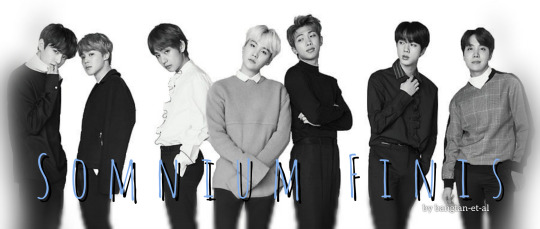
—word count: 2,869
—prologue: A plane sinks into the Pacific Ocean, leaving the world mourning the loss of the 118 passengers on board. Seven of those passengers being the members of the famous K-pop band BTS. At least, that’s how it seems.
—genres: Idol AU, Mystery, Psychological
—contains: Themes of fluff, angst, smut, depression, and anxiety. Mentions of divorce and the use of strong language such as name calling and cussing.
—chapter: 01. 02.
—note: Because of the use of both English and Korean in this story, I found it appropriate to use some Korean terms as well as Korean honorifics. If there is a term you don’t understand, I found most of my sources on google or you can just drop me an ask about it. I’d be happy to educate!
…
“Ah, finally! I can breathe again!” You heard your roommate sigh as she removed her bra for the evening. You giggled at the sight of her, flailed out on the floor like a starfish wearing only shorts and a tank top.
The summer heat was really bearing down, and you made a point to be thankful for your AC everyday. You opted for eating cold, crisp fruits for lunch to further cool you down. The heat wave was taking temperatures to an all time high.
You offered Kimi an apple slice as you joined her on the cold floor. “It’s your fault for taking summer classes.” She popped the whole thing in her mouth and groaned.
She swallowed and proceeded to smack herself in the forehead. “Remind me to never do something so dumb again.”
“Noted.” You laughed with her for a moment before standing. “I’ll retire to my bedroom for some beauty sleep before my flight!” You spoke with the most posh English accent you could muster. “Korea awaits!” You added in Korean.
“Damn, I wish I could go see BTS in Seoul. I can’t believe how lucky you got, ____!”
Lucky indeed. You had been studying Korean for four years, and your professor had a surprise for the seniors. Round trip plane ticket and concert ticket to BTS. He said seeing them in Seoul was an experience you’d never get here in the states. Now that the class was mostly fluent, he felt confident you all could make your way around Korea just fine.
The person with the highest marks on the final won, and that person happened to be you.
…
After a nap you felt refreshed and so excited you could barely contain yourself. You went over your checklist once more for good measure.
Phone, charger, army bomb, passport, ID, tickets, wallet, ₩500,000 for emergency, and lastly your Korean to English dictionary, just in case.
You waved and bid Kimi goodbye as you left the apartment. Your Uber was already there waiting for you and with no more delay you were on your way to Seoul. After all these years of studying it from afar, you’d be able to get a taste of it, hopefully the first of many.
You remembered back to your high school days, when you first heard a BTS song. In your junior year you had heard the song Young Forever. Not their most popular, but the melody always swept you away. For the next year you became engrossed in their music, and it opened up the door to your love of everything Korean.
The food, the language, the culture, you couldn’t get enough of it. By the time you were graduating, you had already learned Hangul and read all the lyrics of Blood, Sweat, and Tears even if you didn’t know what you were saying yet. You decided to major in Korean Studies and minor in Korean language. You weren’t sure what kind of job that would get you, but it was more for yourself anyways. You wanted to learn all you could about South Korea. It was the next best thing to being born there.
Your father was ecstatic at your decision. He was full Korean, and your mother was American. They divorced when you were young, and you ended up staying with your mother because your father went back to Korea. Because of the separation, you never ended up learning Korean and were raised with only English. You kept in touch with your father, but only would see him when he’d come to visit you, seeing as your mother was never okay with the idea of you going across the world alone.
Now, with you and your mother having become distant since highschool graduation, your one true supporter shone through. Your appa. Even across the ocean, he was always so supportive of everything you did and could listen to you go on for hours about how your day had gone. You wish you’d gone to Seoul with him all those years ago.
But there was no point in regretting the past. Now, you were setting things right. In a year, you’d be moving there, and Appa was so proud to have his daughter pursue her ancestry all by herself.
Maybe he’d be less excited if he knew it was because of BTS and not him, but either way, you knew he was just happy to have you with him.
While lost in your own thoughts, you found yourself already seated on the plane. You put your phone on airplane mode and put in your earbuds. Even though you had just slept, as the plane ascended into the sky, sleep found you once again.
…
It was the last stretch now. After a long tour, the band’s last concert was held in Seoul. It was going to be bitter sweet. They didn’t want it to be over, but they were definitely looking forward to a break.
“Namjoon-ah, you definitely have your passport right?” Seokjin yelled across the hotel room.
“Yeah, yeah, it’s right here. Are you ready to go Hyung?”
Seokjin gave him a nod. “Yeah, let’s join the others in the lobby.” They both double checked the room and then headed out. When they got downstairs, the other members were all waiting with a couple staff members.
“Did Namjoon-hyung remember-” Taehyung started, but was cut off by Namjoon raising his arm with his passport in hand.
Namjoon sighed. “You guys are never going to let me live this down, huh?”
Jimin giggled and shook his head. “Nope, it’s your fault for having misplaced it more than once.”
Yoongi was standing there with the rest of them, but his soul was gone. He had a far off look in his eyes, and was doing all he could to keep from sleeping while standing up.
“Yoongi-hyung looks how I feel. Man, that concert was so high energy.” Jeongguk said through a yawn.
Hoseok nodded, “But, America is always great. Just when you think you’ve topped yourself from last time, they bring more and more energy. Even though my body is tired, my heart feels recharged.”
Yoongi groaned. “Recharged? Hobi, you’re crazy.” At his comment they all laughed.
One of the staff motioned for the members to follow them. They departed the hotel in LA at midnight after a long weekend of two concerts. All seven of them were completely beat and looked forward to sleeping the whole flight. They arrived at the airport and promptly boarded the first class seats. As the plane took off the inertia put down a pleasant weight that had them drifting off fairly quickly.
…
You opened your eyes. You were floating in the sky. A dream? It must be. You looked around, and saw seven beautiful men in front of you. All looking around and just as confused as you.
“A dream?” Jimin echoed your previous thought, only in Korean.
Yoongi let out an exasperated sigh. “I swear if we are having a shared dream again, I’m leaving BTS. I just want some fucking sleep.”
“If we’re are, then who is she?” Seokjin’s comment brought all their eyes to you. You froze for a moment. If this was a dream, you weren’t going to complain.
“Hi, I’m ____.” You introduced in Korean.
Namjoon raised an eyebrow. “An American accent? Do you speak English as well?”
“Yeah, English was my first language.” You answered in said language.
“For a dream girl, she’s pretty real.” Taehyung said, eyeing you up and down.
“I should say the same thing, this is my dream after all.” You corrected, switching back to Korean.
They all looked at each other. “This is different from the last shared dream, last time it was only us, and we weren’t conscious that we were dreaming until we woke up.” Jeongguk reasoned. They all nodded in agreement. For a moment, you thought of the possibility of this being more than a dream, but before you could think anything else, you were all ripped away from each other as your bodies woke up.
When you opened your eyes, you were met with an unfamiliar scene. You were no longer in a plane. You first looked up at a white ceiling, and then around at the unfamiliar room. There was nothing in there but the bed you were on, and everything was white. You sat up quickly and swung your legs off the side.
What on Earth was happening, another dream? You looked down, you were wearing the same thing you had worn to catch your flight, and to the side of your bed was your carry-on bag. Slipping the backpack on your shoulders, you crept to the door and slowly creaked it open.
“The fuck is this?! Where are we?!” And angry Yoongi stormed into the center of the space before you. It was a circular looking room with eight doors, including your own, and a hallway leading away from it.
The other members were making their way to the center as well looking around. Some scared, others still hanging between sleep and wake. “Is this still part of the dream…?” Jimin mumbled through sleep.
You stared at them all in awe this was too real to be a dream. You pinched yourself to test it.
…well that hurt like a bitch.
This was all real, it was really happening. You couldn’t find the courage to go out there, at least not until you grasped more of the situation.
“No, this is not a dream. What is this place? Why the hell are we here?” Hoseok spoke with an edge of what sounded like anger or panic in his voice.
Taehyung was pulling at his hair. “What if… What if we were kidnapped?!”
Namjoon clasped onto Taehyung’s shoulder. “Everyone calm down. Does anyone have their phone? Someone try to call 112 or maybe 911.” Seokjin pulled out his phone first and called 112.
The line hung up.
He then tried 911. That line hung up also. “Nothing is working, not even an out of service or range message!” They couldn’t call for help, they didn’t know where they were, and they were all alone.
Except for you.
Taehyung saw movement out of the corner of his eye. “There’s someone there!” At his word Hoseok jumped into action. The door you were hiding behind was whipped open. You let out a yelp and fell on your ass.
“The girl from the dream…” Hoseok stares at the with wide eyes and the other boys crowded behind him.
“H-hello…” You mumbled in Korean. You stood back up and brushed yourself off.
“Why are you here?” Jimin asked cautiously.
You nervously shrugged. “I don’t know… I just woke up here. Last thing I remember was being on a flight to Seoul from LA, and now I’m here…”
The members looked at each other. Surely wondering if you were to be trusted. You fumbled with your fingers nervously. Here before you stood the seven men you’d looked up to for years, and you couldn’t even raise your head to look at them properly.
You needed to let them know you were in the same boat as them. “Do you guys have any idea what’s going on here…? Were we kidnapped?”
Namjoon relaxed a little. “I’m not sure… There aren’t any windows, and no emergency number works.” You all made your way back to the center room.
Jeongguk peered down the hallway. “We could try going down there…?
Namjoon leading the way, walking in a defensive pose, taking every step carefully. “Everyone be quiet…”
The hallway opening up into what looked to be an apartment or house. There were still no windows, and mostly everything was white. It reminded you of a hospital.
To your left was a door with a screen mounted on it. There was an image of a line and a keyboard beneath it. Below the screen was something like a mail slot only wider and taller. From left to right starting from the door, there was a living space, a dining room, and a kitchen, all on an open floor plan. It looked very high end and modern, nothing you would ever be able to afford in your lifetime.
Taehyung was the first to approach the door. He typed the word “unlock” in Korean. A voice echoed around the space.
“Request denied.” It answered in Korean
“Holy shit it speaks.” Taehyung backed away from it.
“Let’s try English.” Namjoon offered and typed out “unlock” on the keyboard.
“Request cannot be accepted as entered.” The voice echoed in English. You stepped up and proceeded to type in every synonym and rewording you could think of to no avail.
Jeongguk was nearly vibrating with anxiousness. “T-try requesting something else completely?”
Taehyung nodded and typed in “hamburger”.
“Really Taehyung-ah?” Jimin grumbled. “This is no time to be messing around!”
“He said something completely different-”
“Request granted.”
“See?” Taehyung finished his sentence.
The mail slot opened and a tray with a single hamburger was revealed. There was a slight opening where the door on the slot lifted. You quickly reached your arm in the space in hopes to reach the door knob from the other side.
Immediately you jumped back as electricity shot through your arm. You held it close as every cell screamed in pain. “AH!” You landed on your ass for a second time. Namjoon was the first to kneel down to help you.
“Are you okay?!”
“Y-yeah…” You gritted out through your teeth. “Well now we know that doesn’t work…”
When the pain dulled to a throb, Namjoon helped you up with your other hand. “No one else do anything else before consulting the group consider this enemy territory. And Taehyung,” Namjoon paused to looked at the younger man, holding the unwrapped burger to his mouth, which was wide open and ready to take a bite. “No eating anything until we make sure it’s not poisonous.”
Taehyung lowered it with a groan.
Namjoon directed his gaze to you. “Do remember a dream before we all woke up here?”
You pondered whether or not to be truthful, but you figured transparency would be the best route to take. “Yeah… I introduced myself.”
“So your name really is ____-ssi?” Namjoon added.
“Yeah. And I’m sorry if my Korean isn’t good… I look Korean, but I only began learning it 5 years ago.”
“No worries. We understand you just fine. What we need to do right now is think logically and figure out what we do and don’t know.” All eight of you made your way to the living room and sat on the couches as Namjoon stood in the center.
“Namjoon-ah, I think we were on the same plane as ____-ssi. What if something went down while we were sleeping?” Yoongi gestured to you. “Do you remember anything?”
You shook your head. “No, I fell asleep during take off, so I have no idea.”
Hoseok eyes you warily. “We don’t know her, how do we know if we can trust her? She could be a part of whatever is happening?”
“Hoseok-ah, we can’t assume things-” Namjoon starts but is cut off.
“It makes sense for the seven of us to be together, but why her? She’s clearly the outlier.” No one can argue with him as he finishes his point.
Taehyung looks over at you. “____-ssi, is this burger safe to eat?” He holds up said burger.
You look at him confused. “I-I don’t know… But I wouldn’t suggest eating it.”
Taehyung nods, seeming content with your answer. “I trust her. She not actively trying to kill me. Taehyung.” He offered his name and his hand to you. You take it and tried to stay calm and push down the fangirl inside you.
“N-nice to meet you, Taehyung-ssi.”
“I completely forgot to introduce myself. Where are my manners? My name is Kim Namjoon.”
“Its nice to meet you, but to save some precious time, I already know everyone’s names.” You looked down, wondering if that came off as rude.
Jimin cocked his head. “Oh, are you ARMY?” He offered you a smile.
“N-no! I just, have heard about you all and heard a couple songs. I’m half Korean, so it’s hard not to know.” You lied, but you thought maybe you could make yourself more trustworthy this way. If you said you were ARMY, the next paranoid assumption would be that you were a saesang, and that wouldn’t help your case at all.
“Then lets cut the small talk and get back to the issue at hand. Why are we here? Are they holding us for ransom? What happened to that plane?” Yoongi butted in. His patience was running thin.
You pulled out your phone, and idea popping into your head. You googled your flight. What you saw made your heart drop to your stomach. It must have shown on your face, because Taehyung leaned in to look at your phone.
“What is it?” He questioned.
“…this article says the plane went down. It crashed in the water and sunk. They are yet to have found it. They’ve pronounced all 118 passengers as victims of the flight. We’re all listed as casualties.”
#bts#bts fanfic#btsfanfiction#bts fic#bts angst#bts fluff#bts smut#bts seokjin#bts yoongi#bts hoesok#bts namjoon#bts jimin#bts taehyung#bts jeongguk#bts jin#bts suga#bts jhope#bts rm#bts v#bts jungkook
38 notes
·
View notes
Text
1 Year of Learning Korean
One of the most popular questions I’ve gotten since coming back from Korea is: Are you fluent in Korean now??*
*Spoilers: I am not. 🙃
Looking back, I probably would have become more conversational if I had just done a 3-month intensive program. Although, compared to just learning by myself in the Bay Area, being in Korea definitely gave me more opportunities and motivation. I was placed in the high intermediate class for orientation (switched to low intermediate), but I would say that I’m now truly at an intermediate level. I think my Korean’s more or less the same as my Japanese (which has regressed a lot, and I only took 3 semesters in college) but with very shaky foundations.
Anyways, here’s a brief timeline of what I did this grant year. Let’s go~
[Initiate lock n’ load montage]
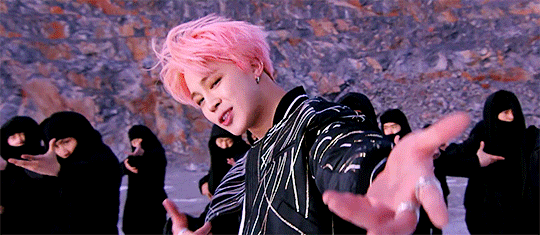
July
Korean Intensive Program (8-12pm, 1-2pm M-F)
Because of how the program was structured, I didn’t feel like I learned very much. This is partly why my foundation is so full of holes...we skipped around here and there.
August
Korean Intensive Program
September
Korean was put on pause due to troubles adjusting to homestay
October
Occasionally did a few chapters of Billy Go’s Korean Made Simple at school
Studied some Korean vocab
November
???
December
I don’t think I studied Korean at all
January
Got a wakeup call when I spent 5 minutes trying to read the back of a sign at a smoothie shop and realized how slow I was at reading
February
Vocab grind (1000 Essential Korean Words), plan was to finish by the end of March. Two weeks of intense vocabulary cramming on Quizlet (did nothing in the end lol don’t try that)
Bought the Real Life Conversations Intermediate book
Studied Korean in Kpop lyrics
Started a side coding project to help my touch typing (K-pop lyric typing game)
March
Memorized dialogues from Real Life Conversations book with Lauren
Improved reading skills slightly by listening and following along with the audio recordings that come with the book
Read through the dialogues with the Korean literature teacher in my gyomushil
Continued to learn song lyrics
Wrote sentences with each new vocabulary word, got my co-teacher and the Korean literature teacher to check them (<-this was probably the most helpful game changer...it helped a lot with my spelling too)
Continued working on the K-pop typing game
April
Stopped learning new vocab at around Chapter 11 of Essential Words, focused on retaining old vocab through Anki flash cards
Finished the Go! Billy Korean Made Simple book that I bought ages ago (tbh it was too easy for me at this point but I was just too lazy)
Finally sat down and “learned” Korean verb conjugations (I’d just been going by gut instinct before…tbh I still kind of do 😅)
Kind of dropped the typing game after finishing the MVP 😅but I’m gonna try to finish it up now that I’m back
May
Started to panic about leaving Korea in 2.5 months but still sucking at Korean
Signed up for private lessons once a week for 90 minutes (My tutor asked me to give her a shout out. Her name is 서영심 ([email protected]). If you’re in the Cheongju/Ochang area, she comes to you! She’s very professional and you’ll get your money’s worth.)
Started at the intermediate book that focused on grammar
Learned ~5 grammar points every week
Started writing and reading a lot more and actually seeing how words are spelled. The first time I saw 여기--a super common word (yogi) that means here--written out I thought it was so strange...not that I had thought it was 요기 (also pronounced yogi) but I just didn’t have a visual of it in my head, I guess.
June
Depressed about lack of improvement
Continued with private lessons but felt like I wasn’t really retaining the grammar dump from each week
At the very least, Korean homework kept me on track and made me practice even when I didn’t want to
Started Anki again since I hadn’t actively studied vocab since April.
An old K.Will song that I hadn’t listened to for a long time came up and I realized I could suddenly understand the lyrics. That was pretty cool and one of my small win moments.
July
Feeling pretty hopeless with Korean
However, hung out with more Korean friends that only spoke Korean and felt like I was actually able to contribute to the conversation. (3 hours of Korean Listening ...🙃)
Was able to understand 70% of the conversation at my gyomushil’s final farewell lunch for me. I contributed to the gossip!
Went home and immediately lost 50% of my Korean skills upon touching U.S. soil.
So basically, after my burst of inspiration in February, my confidence and motivation in Korean just kept plummeting. Even now as I write up this post I feel an overwhelming sense of hopelessness. But I do want to highlight the progress that I’ve made since orientation.

Korean Reading
We were all supposed to be able to read Hangul before we came to Korea. Being able to recognize the alphabet is different from being able to read and also different from knowing the pronunciation rules and where to pause in your reading. During my first semester, my eyes would automatically glaze over whenever I saw Korean text. When the second semester started, I tried to force myself to read everything I came across - storefronts, street signs, advertisements on buses, etc. Even if I didn’t know what it meant, I would force myself to read it. Right now, I can navigate a Korean shopping website and read a menu semi-comfortably. I’m still waiting for the day when I’ll see English sounding hangul and be able to read it as fast as English. Although, I will say it’s really nice to be able to read the Korean titles in Kpop videos on Youtube, especially when I come across really old songs (like Super Junior’s No Other 너 같은 사람 또 없어) and realize I now know what it means.

Also, a new world that has opened up to me is...노래방!! Karaoke is such an adrenaline rush. I’d compare it to sight-reading or DDR/rhythm games where you know something is coming up and the satisfaction you get when you get it right with the beat of the music is 👌. It’s so gratifying to be able to sing along...거기 너 I FANCY YOU 아무나 원하지 않아 HEY! I love you (LOVE YA)!!

Korean Writing
Back during orientation, I couldn’t spell anything on my own. I knew words every koreaboo knew like 어떻게 and 괜찮아 but I couldn’t write it because I didn’t know how spelling worked. It’s no wonder my spelling didn’t improve since a) I didn’t write and b) I didn’t even read. Even now I still make a lot of spelling mistakes, but I pay attention to words when I see them. It’s still a very slow process, but now I can picture the hangul in my head when I think of the word.
Typing: I started orientation with around 15 wpm, then by the end of orientation I got to around 30 wpm. Currently, I’m at 60 wpm when I start cold and after I get warmed up I can go up to 80wpm. Being able to touch type is so useful, especially when I’m typing up long sentences from my textbook and I don’t have to look up.

Korean Listening
Dare I say...my Korean listening is my strongest point??? I remember when I took French listening tests in high school, I would always lament with everyone else that they spoke too fast for me to understand. But interestingly, for both Japanese and Korean, I never had that problem. If it only contains words and grammar I know, I can understand it perfectly fine even if it’s fast. I intuitively understand most Korean verb endings and exclamations so it’s not hard to know which way the conversation is flowing or when to interject with “세상에,” “맞아 맞아,” or “말도 안돼.” I used to think my poor lack of vocabulary was the number 1 thing blocking me from understanding, but then I learned more grammar and realized the things I didn’t know. I do feel like parts of the fog are being lifted...sometimes...

Korean Speaking:
I still feel pretty embarrassed when I speak Korean because there are some sounds that I can’t pronounce. Compared to orientation, I have a few more stock phrases tucked and ready to go, but I still feel unable to express myself. Every conversation will start out fine, but they’ll all stagnate to the same topics and sentences after a while.

Complications with other languages
I talked about how knowing some Japanese and Chinese was both an advantage and a disadvantage during my beginning stages, but this is true even now.
Ever since I started getting more comfortable with typing and spelling Korean, I’ve started seeing the actual Hangul in my head when I think/hear Korean. I’ve also started to associate the locations of the Hangul characters with their locations on the Korean keyboard.
One day, I was trying to text back my mom with “那是什么?” (Na Shi Shen Me/What’s that?) but was confused because those characters weren’t showing up. Then I realized I was typing “sk” instead of “na.” Some of you guys might get it....because “s” is where ㄴ(n) is and k is where ㅏ(a) is on the Korean keyboard. Clearly, my brain can’t handle it. It’s interesting because both the Japanese and Chinese keyboard uses the same alphabet placements as English.
Another time: I was watching a Talk To Me in Korean video where Hyunwoo talked about how 하다 is a very versatile verb. I immediately thought about how the Japanese equivalent is 수루 and even mentally mapped it out on the Korean keyboard...before realizing this is WRONG, WRONG, it’s する not 수루 LOUISE WHAT ARE YOU EVEN DOING. (They are both pronounced suru)

What’s next?
Now that I’m back in the States, it’s going to take even more determination and self-discipline to keep up with my Korean. But I really don’t want everything I’ve worked towards to just wash down the drain. I’ll aim to finish my intermediate grammar textbook and grind anki flashcards. Hopefully, I can find a language partner or a study group. We’ll see!
#language learning#studying Korean#korean#fulbright korea#sorry for the long post#but yes i am back in california#also which one of you messaged isabel about my blog#thanks for reading whoever you are!!#also shout out to my buddy#i actually have one more post to make on my school festival#and then i'll wrap up this blog#learning korean
5 notes
·
View notes
Text
Ktravels / Klife: After a year in korea Final Thoughts
Foreword: Surprise, surprise, procrastination got the best of me for quite some time. But im back. And for the last time. At least for the last time regarding my year-long study abroad experience in Korea. Here lies the last bits and pieces of my heart that left behind such a wondrous lifestyle in such a complex country.
--
I guess this will be the last of my “Korean” writings for a while. I think I kept holding off on this because I didn’t want to solidify the fact that my journey abroad is officially over. I guess even being home and everything still doesn’t make me accept reality. All I can keep thinking these days is that exactly a year ago, I was sitting around every day, waiting for my summer to end & for me to hurry up and end up in Korea & I kept asking myself over and over and over and OVER, ceaselessly: “I wonder how my life will change once I live there. I wonder what my life would be like over there”.
And what’s crazy, is that even though I kept desperately trying to grasp that fact so intensely a year prior to today, I still don’t have the answer as I sit here in this seat. I still don’t think I can properly express what my 10 month-ish experience was like. I feel just as contemplative as I did a year ago.
I think ive been holding off writing this mostly because I don’t even know what to say. Why don’t I have anything to say? Hmm.. or more like, I have so much to say that I don’t even want to begin. Because once I do, and then once I wrap it all up, everything will truly be all over. It’ll solidify the fact that my year abroad is all done for, never to come back to me ever again.
I think my final post of my study abroad IG account, the one I posted every single day for, enclosed my immediate, final thoughts and feelings really well. I mean, I literally wrote that on the plane flying home, sooooo…
Maybe I should start with addressing my goals I set for myself before I left, and how those goals panned out upon my return. Very vaguely, one of my main pursuits was to “become fluent in Korean”. Even to this day, im not exactly sure what that constitutes and by my standards, I don’t really know to what extent I wanted to improve based on that statement…. But, I guess I just really really really wanted to practice communicating more and essentially feel comfortable speaking, reading, writing, and listening in this completely foreign language. And I mean even prior to arriving, I had already known how to read Hangul for like 8 years. So in terms of reading, I just got to practice a looottt and just brush up on my speed & precision, I guess. Listening has also never been too much of a struggle: years of pure absorption and drowning myself in Korean in every form possible has taken me this far, to be quite honest. It was never anything intentional, I just held onto more and more words as the years went by. And quite frankly, I’m pretty damn proud of myself for that. I guess my point is that I unknowingly wanted to focus on improving my writing and speaking. Which sounds a bit futile, because what was the ultimate purpose in expanding on these skills? When I cannot even use them outside of Korea? Hm… I didn’t think that far. I just knew I wanted to improve. Or no, I don’t even think I had any real basis before arriving anyway. I just wanted to get exposed to that side of the language and make some sort of progress. Because I enjoy it that much.
I didn’t even know how to write the strokes of Hangul characters properly. No one had ever taught me. For years, for the small words or phrases I might’ve scribbled down for fun or doodled my notebooks with, I just wrote what I knew, like pictures. I still, to this day, don’t know the proper strokes lol. It kinda makes me feel noob, but o well, ive made it this far nonetheless. In terms of speaking, of course, I had absolutely no background. There had never been a chance to practice this skill… in fact, if there were one, if I did speak Korean at some point before going to Korea, I feel like that would’ve been really weird anyway… I wasn’t learning it formally in a classroom or anything, so if I were to try…. To god-knows-who…… I dunno, that doesn’t seem right to me. There was just never a proper place and time for me to use any sort of spoken Korean, and that made sense. Because I had such a wide range of “skills” under my belt when it came to this language prior to arriving, none of it was… “official”? None of it was ever proper…..? I am not really sure which word fits best, but the fact that I had known everything I knew at that time from pure Korean media absorption, it bothered me a lot actually.
I wanted to learn formally. I wanted to learn properly. So, I didn’t hesitate to take the intensive Korean language course at Yonsei, one that was 4-6pm every day, Monday-Friday, for the entire semester. What I did hesitate with though, very greatly, and a little regretfully, was the level in which I started learning formal Korean. A part of me is regretful, but I think I know in my heart it was the better decision. Speaking Korean with the teacher on the day of the placement test was probably my first time ever really speaking full sentences aloud to someone else & I can sorta recall it with slight embarrassment. Okay not even slight, like a ton lol I was such a nooooobbbb… I still ammmmm….anyway, based on that day’s tests, the teacher deemed me as able to start in level 2. But I rejected him. I told him I wanted to start at level 1. Because ive never learned properly before, I felt the need to start from the beginning. He told me that level 1 would begin with each Hangul character, pronouncing them one by one, etc. He asked if I’d be okay with going over all of that, and I told him it was fine.
My level 1 class ended up being more of a level 1.5 & we went much faster than all the other classes and didn’t even start with the basics that I was originally warned of. But still, quite frankly, level 1 KLI was butts easy and I didn’t even need to study for anything to do well. For that, im pretty proud of myself. I’m not trying to brag, but I’m actually just very glad that my skills I arrived with were at least up to par enough that I could complete 1 without much struggle. What I was most grateful for was that I got out of KLI was a lot of grammar basics. A lot of these structures I recognized and have probably used on my own before, but I didn’t know the rules properly myself, until I finally learned them in KLI. So really, if I didn’t take level 1, I really think I would’ve lost out on that basic foundation needed for learning more advanced things. Granted, I probably could’ve covered a lot of those things in my own time if I searched for the proper resources and had a stronger motivation. But I never did that by myself. So, I sorttttt offfff, “wasted time” in level 1.
The next semester, level 2, was also not too difficult. Some concepts were definitely a bit more challenging and less intuitive, but nothing impossible to understand. Overall, my semester 2 at Yonsei was when my Korean grew to the heights that I had hoped for. If I improved about 10% during semester 1, then I would say I improved 115% in semester 2. I don’t even know what that means myself, but my point is that I had many many manyyy more real life, application opportunities to use Korean. The biggest factor being my participation in Powers, the badminton team at Yonsei, that semester. Aside from the 2729017 other things that Powers influenced that semester, language was a big thing. At some point, many of my teammates considered me the “American that is really good at Korean”, but like, the over-exaggeration is real. Although one dude consistently talked to me in only English for the longest time, once I met beloved 익안언니, that English-only image of me died and I communicated with everyone else the same way they already communicated with each other: in Korean. I know that sounds….like…. idk, not a really big deal. Like wow good for you, you could communicate in a foreign language with these people. But my biggest deal with it was that if it weren’t for me being in Powers, I would not have practiced speaking or expanded my vocabulary or just LEARNED as much as I have. ESPECIALLY meeting 익안언니 was such a blessing. Although she is from Taiwan, she is a grad student studying Korean language and culture which already implies that she is basically fluent in Korean. And me, knowing absolutely no Chinese but at least having half-assed Korean skills, we only ever communicated in Korean from day 1. Since the day we met, the day she came up to me and asked if I wanted to warm-up with her and asked if I was a foreigner or not, and then revealing that shes actually a foreigner, too. That made us automatically click, because we realized we could both speak without feeling wary of sounding dumb or making mistakes in front of a REAL Korean person. Granted, other teammates always heard a lot of our conversations and sometimes joined in, too. The main point was that speaking Korean in that sense, was the best experience I could’ve asked for. Others may think the most ideal would be, y’know, a real Korean person. But, why be picky when the point is that I got to practice.
By the end of semester two, I had a kinda random idea, fueled by a conversation I had with a KLI classmate. She mentioned how she was studying for the TOPIK 2, the intermediate-advanced Korean fluency test for foreigners, and she decided to take it in Korea versus America because she heard it was easier and the 65th one would be held in Korea while she was there anyway. Upon hearing this, I only vaguely knew about this test, I didn’t think it to be that big of deal, yet in my head I knew I was always impressed with foreigners when they would say something like “yeah I placed level 6 (the highest mark) on the topik”. And so, I looked more into the test myself, and I was like hmm maybe I should try it out myself. 익안언니 mentioned that she actually needed to (re)take it too because her score from her last test is expiring soon. So very last minute, we decided to take it together. It costed money, but that was expected. I debated a lot in the beginning whether or not to take TOPIK 1 or 2, aka easy vs hard, but I decided to just fuck it, I just gotta make sure I study for reals and have more faith in my skills lol.
Im glad I made the right decision. I didn’t study as effectively for the test as I would’ve liked, but I did what I could given my circumstances. I was shooting for level 3. I at least wanted a LEVEL out of the test, not a blank score, which is what would be given if you can’t even manage the minimum level 3 out of the TOPIK 2. That test seriously HURT my brain LOL. As you get towards the end of each section, it gets ridiculously hard and there were 2475830 words I did not understand at all and the mere rows of sentences eventually turned into huge walls of text that filled the paper all the way to the edges and o gosh, just imagine how brain frying those sorts of exams can be HAHAHAH.
In the end, I placed level 5. I was 8 points away from level 6. I was honestly very shocked and to this day, I think I just owe my score to me doing a good job at guessing correct answers, not my pure skills LOL. But above all else, I definitely underestimated myself. I really wanted to take the TOPIK to assess my Korean skills once and for all, definitively. But even after receiving my score, I still feel lost on how to accurately describe my skills. Does level 5 even cut it? Do I even have the right to call myself level 5? I got it though, right? Having drowned myself in Korean for 8 years & taken level 1 & 2 KLI, I was able to be lowkey fluent, I guess.
That’s pretty damn cool. Im pretty damn proud of myself. And yeah, idk, that’s that. LOL. Im not trying to brag about myself or anything. All of that was purely my journey with the Korean language, particularly in the context of studying abroad in Korea for a year. And in regards to my goal, I think I did a pretty good job. I can write long chunks of text without too much problem, I can speak a good amount, maybe not 100% flawlessly, but I can hold conversations, I can go weeks with only speaking Korean, and I think that’s pretty awesome progress that I made towards my goal. If anything, I may have surpassed my anticipations. Cool. LOL
Another one of my main goals was to travel outside of Korea. Or not even that, just outside of SEOUL. Because as amazing that city alone is, I also knew that there is sooooo much to explore throughout the rest of the country and even in other nations. For second semester, I went to Tokyo in Japan, Bangkok in Thailand, Taipei and Tainan in Taiwan, and Busan, Jeonju, Jeju-do, and Yeosu in Korea. I was very blessed to travel to 3 other countries and hit a few beautiful areas outside of Seoul in Korea, too. Although it was a tiresome experience, I wouldn’t have traded it for anything else. Balancing school and travels and other commitments was ridiculously tough. Ive repeated this a lot but: all my snaps and ig updates may have looked like fun and games, but the burnout was real. Traveling with friends isn’t all fun and games.
I learned SO MUCH through this experience: planning logistics thoroughly, dealing with money & currency exchanges strategically, balancing school work, moving things around as necessary, utilizing transportation in various different settings in an effective and efficient manner, familiarizing oneself with the GEOGRAPHY of a place (a really important one that I feel people don’t really talk about), researching attractions from different perspectives & using multiple, varied resources, knowing where to go for help, preparing proper lodging accordingly & communicating with hosts/staff, researching FOOD, too. I could go on and on.
But when it comes to traveling, especially while on a budget bc we are broke ass college kids, the amount of proper communication & discussion & preparation with other members of the group that needs to go into it is no joke. It’s not fun and games, it’s making sure that we know what the fuck we’re doing in a foreign environment so that we can explore, see things, get around, eat, and ENJOY our time safely and efficiently.
SO in that sense, I’m also pretty proud of myself & my friends. Special shout out to Sabrina Sooyoung Wong who was my ultimate travel buddy for (almost) everywhere I went. I already miss the amazing time we had together :’(
Continuing where I left off, I have realized that this writing is taking way too long. The day that marks one year since I left for Korea has already passed (August 21st) & I realized that I was gone for exactly 11 months: Aug 21 - July 21 (w/ a break in bw ofc) bc I literally landed back in America on the 21st of July, not realizing that the day I left was exactly the 21st as well. And my birthday is on the 21st too. Of Sept..:0 that’s whack. ANYWAYYYYYYY…………
What more do I have to say about this trip, hmmmm……. Ive already talked about my growth through the language and through traveling all over the place…These days, ive truly been trying to relive & recall the worries that shrouded my mind a year ago before I left.
I remember so clearly, constantly asking myself “How will my life change once I go and live there? Will I even be able to make any friends?” People around me also kept telling me that I would “HAVE SO MUCH FUNNNN”, but I recall constantly shutting them down and being pessimistic & telling everyone that I “would just be a normal student studying all the time, just in a different country lol” To address all these predeparture worries, I’ll say simply, thinking back on it now: My life changed SO MUCH, that it feels like nothing even happened at all (ik like wtf??? But lemme explain…), I made friends that I know will last a lifetime, and HONESTLY, I worked really hard studying when it came down to it, but I also made sure to have as much fun as I could. I did my best to balance everything (especially 2nd semester..)
So like, how tf could my life have changed so much that it feels unreal? Well, it’s exactly that. My daily life, the way I went about my daily routine, the lifestyle that I honed, the world that I wrapped myself in, the things I did, the food I ate, just about EVERYTHING about my life in Korea was so drastically different than my life in America, that returning home actually just makes it all feel like a dream, as if it were all a lie. My Korean lifestyle and my American lifestyle are incomparable. They are two completely different worlds. And for that…. I….. yes, I miss the Korean one like crazy every day, but that affection and sentiment for what I had makes my experience all the more precious and just… dear to my heart. Oh so dear to my heart, 나의 유학생활…. I think I kept asking myself the “how will it change” question countless times before I left because I was trying to prepare myself, trying to make sure I don’t throw myself off in the heat of it, make sure I stay grounded in the reality of my circumstances. And although nothing could’ve prepared myself enough for all those specific changes in my life, I think I definitely stayed rooted in mindfulness and never lost sight of the privilege I had.
If I look back on my first semester writings, I always repeated the words “thankful” & “grateful”. I really did my everything to remind myself of those feelings. Same goes for the friends that I met. Particularly my first semester gang, my days spent with them were infinitely bright. I feel like we were all so lost in the wonders of Korea (and Taiwan) and the beauty of just being there, spending time together, having valuable conversations, but also some very dumb ones, and really just bathing in the precious company of each other. It is not every day you meet an amazing group of people as the ones I did 1st sem. I gave yall a shoutout before, but thank yall again for taking care of me, the youngest of younglings out there, and making me laugh & smile more than I could ever recall doing with anyone else. Even my blessed friends from 2nd sem too, sooyoung, antony, Vicky, & 익안언니, I could not have imagined what my life would’ve been with them. My point in all of this? I was so worried about “making friends”, but miraculously, luckily, AMAZINGLY, it all worked out in the end. I am so grateful for that. I got close to some frking really cool people, who I still talk to today, who I still think about a lot, whom I owe a lot of myself to. Even if our collective time spent together was not the longest, even if the timespan of my other friendships are significantly more extensive, the friends I made through studying abroad are infinitely valuable and precious to me at the end of the day. Only stunning memories remain. Our friendships wont end there. They only started in Korea, but I have faith that they will transcend timezones and the years to come.
In terms of just balancing LIFE in korea, I can definitely recall many instances where I felt completely overwhelmed and burnt out. Those days were bound to come from the start. There were many days were I lacked a significant amount of sleep because I was so busy, there were days were I felt perpetually stuck & I could never overcome my problems (the things… a foreigner in Korean cannot do without a phone number…. Gg I felt soooooo shitty at that time)�� there were also, ofc, days where I felt frustrated with many different people, there were days were I was so stressed out about whether I was doing the right thing (my 2 tutoring gigs…) or if I deserved anything I was receiving…., there were countless days where I studied hard and stressed about academics, as always (but I managed to get all A+’s 2nd sem & im honestly so proud of that…) …there were plenty of days where I would feel Korean societal standards weigh down on me & I felt painfully inclined to fit in in any and every way possible,.. I also struggled with deeper questions about the kind of toxic community Koreans can foster in various contexts (political, nationalism, etc..)… and the biggest of adversities, the one that broke me down the most, and to this day has left me empty & lost… was watching my singer get torn apart and disappear before my eyes.
I have written about this specific topic very extensively in a different piece, and…. It is definitely a pretty heated, passionate, painful piece. I had many many many many things to say about all of it, and I actually still have countless words to say, honestly. For sake of concision, for sake of keeping my sanity in place for at least this piece of text, for the sake of my world that has crumbled apart far too much for me to ever pick myself back up again… I’ll just say… I miss him so much and I pray for the day I can listen to him again. I won’t even be greedy and say “see” him again. I know ive seen him more times than I ever deserved too. But I want to listen to his voice again. In a new light, in a reassuring way. In some form, I want to hear him again… just once at least… please…Knowing him, listening to him for years, holding onto my life with his voice & music… I know that he needs to do music and nothing else. It breaks my heart every day to think about how this light has been lost from him.
One day… one day……….. I pray desperately every day that one day, he will come back to us. Please.
Its honestly pretty difficult to talk about my hardships during my time in Korea without mentioning that stuff. It has taken such a big toll on me, life became so taxing because of that one situation, that even today I sit here, half a year after it all fell apart, without much improvement on the state of things anyway. But enough of the negative stuff. I hope that’s enough. Despite all the pain & highkey trauma I acquired from it all, I know that at the end of the day I learned valuable lessons and that I am still grateful for every experience nonetheless.
I still wouldn’t be who I am today or where I am today without those tough times, too. It sucks that I lost my light along the way, I lost sight of my world that so ironically always gave me healing when I needed it most.
Another thing I should mention is how I am also very grateful for that fact that I never got sick while in Korea, or just while abroad in general. I usually catch a cold about once a year, even my first year of college, I definitely had that small period of time where I was dead sick from some sort of virus. But not once, did my body ever falter while abroad. It’s ironic because usually being in foreign countries, especially the not-the-most-sanitary ones like Thailand, Taiwan, etc, one would normally be much more susceptible to a stomach bug or heat-related complication or whatever. One would think that my body would be especially vulnerable abroad. But nope. I stayed strong all throughout. I’m pretty damn proud of that too. I tend to take my health for granted, but looking back on it now, I guess I held up pretty well despite all the odds against me.
The most important question I should be asking myself now is… How have I changed since I’ve studied abroad? Some basic changes would be my outer appearance. My makeup has definitely changed, my clothes do not exactly look like the rest of my friends’, and my eyes are sometimes slightly different colored LOL. But, mentally? Emotionally? What has korea done to me? I thought that once I returned from being abroad, I could be this strong, amazing, fearless, bold person. Maybe in some aspects, I do feel that way. But quite frankly, being away from some beloved, close friends for so long has left me more insecure and unsure than I would like to admit.
No part of my confidence has significantly skyrocketed or anything. I am still too much of a pessimist for any of that to be possible. I actually feel kinda reluctant, vulnerable, skeptical… when it comes back to reconnecting with the friends I haven’t seen for over a year. So in this way, Korea has changed me in which I do not know how to reconvene with the life I originally left.
Korea also….. made me fall in love with the “Asian lifestyle”. I say this a lot in person, but I think I genuinely love Asian culture & way of living better than America’s. Especially after coming back & coming to terms with how normalized some illegal stuff are among kids my age are now, I cant vibe with any of that. I know well enough that both cultures have their pros and cons and but I think I can safely say I prefer one over the other. I have grown up in the same exact house and neighborhood my entire life and I very ironically chose to go to a school that mirrors this familiar environment almost perfectly. Therefore, I easily lose sight about what is new, what is enjoyable, what keeps me grounded here.
So to be honest, nothing keeps me grounded in my hometown. Not my parents, not really my hometown friends, nothing special. It’s a fact that I felt more attached to Korea than America. I don’t know. It just ended up that way.
I traveled to and studied there for a year because I felt like my heart belonged there. And after coming back, I think I finally can contest to that statement.
One more thing, as I try to run out of things to say… I dislike K-pop and I wish it wasn’t such a definitive part of Korea itself. I know for a fact that the way in which K-pop has blown up over the years is an inherent loss for Korean culture because now the world has been misguided, misinformed, and misinterpreting Korea as a whole due to K-pop. I hate how, if I were to speak to someone ive never met before about me studying abroad in Korea, they would most likely assume that I like K-pop or make some sort of connection to my experience, with K-pop. That presumption needs to end. I do not relate my experience to K-pop in any way. There was so much outside of that. So like, no, I did not meet so-and-so. No, I did not see that group on the streets. No, I did not go to that concert. I admit I went to plenty of concerts, but those people were basically NO NAMES compared to actual K-pop artists… So please… I wish there was a distance between Kpop & Korea.
I have come to cherish Korean culture way outside of K-pop. Sure, its what exposed me to it all in the beginning, but I very quickly, very NATURALLY, grew out of that mindset & perspective. Sigh. That’s that. A real shame.
I haven’t been able to wrap this up for an entire week now and I think, right before I head back to school for good at UCI, this would be a good time to close it up for good.
What I meant to talk about throughout this entire “final journey” chunk was how studying abroad changed me, and what that might mean for my future.
These days, while ive been lowkey wallowing away at home, avoiding my responsibilities and waiting for everything to come crashing down onto me once I return to Irvine, one of the biggest things ive been really missing is Yeosu. My spontaneous 2 day, 1 night trip to Yeosu with Sabrina was probably one of the best spontaneous adventures I ever chose to do.
Yeosu held some sort of beauty that is so impossible to explain, that pictures don’t even do justice for, and is really just a hidden gem sort of place that I am so so so blessed to have visited and fallen in love with. Even if it was just for two short days, Yeosu treated us SO well. It will forever be one of the best memories I’ve made in Korea, because of all its combined natural beauty, open air, wonderful weather, breathtaking views, exciting and undying street pojangmacha street life, and FOOD! Amazing, home-cooked 한식…..it was really, honestly, great.
Another thing I thought of: I feel like I took so many airplanes that I lost count and I even lost that exhilarating, enthusiastic feeling that used to be associated with taking airplanes at some point. I am not trying to BRAG that I had that sort of privilege, but I just wanted to…. Reminisce on that missing emotion. Now, going through that entire check-in, security, waiting, boarding process feels sooooo draggy, and if anything, even a waste of time….. :( but I at least appreciate airplanes for being able to take me everywhere…
OKAY FOR REALS, last thing im going to address: my current perceptions on sharing my journey abroad with others. If im going to be completely honest, I really hesitate to talk about how I studied in Korea for a year. I am pretty damn paranoid about what people would think of me and I am reluctant to really tell my story because I feel like all of it is very important and special and dear to my heart that it’s not as simple as “yeah, it was chill, I had a great time”. In response to the question of “omg how was it????”, ive literally made a script for myself: “honestly, like my life in korea and my life here in America were so totally different that it feels like it didn’t even happen… it went by so fast and there was so much going on that coming back here feels pretty weird…also, reverse-culture shock is real”
That is the best spiel I can muster up if I were to briefly talk about my experiences abroad. But in reality, I would want to talk about why korea & the Korean language mean so much to me, how grateful I am for all the places and people and things I got to see, how convenient day-to-day life was. And most of all, I would want to address the all the negative things I discovered about Korea. I would want to talk about how for nearly half of my time there, my world was, and still is, crashing down onto me, and how that entire happening has affected my viewpoint of Korean society greatly. I would love to go on about the nuances that make Korea a very toxic social environment, how many aspects that make it well-known and well-received globally also contribute to my disliking for Korea. My experience was so eye-opening. It really was. With all the beauty I discovered along the way, I feel like I faced some extremely terrible shit, too. But of course, as I have been repeating ceaselessly, I am thankful at the end of the day. I always am.
I think at this point, I don’t have much more to say. Despite how much I miss Korea on a daily basis, for now, I think its best to let go of it. I am proud that my daily Instagram will stay as my detailed, thorough testimony to the countless experiences and stories I thought were worth sharing, or remembering at the very least. 286 days. To be exact, I was abroad for 286 days. Not a year exactly, but sorta close. I did my best. I did everything I could. I was independent as I could be, I saw all the things I could see, and I just appreciated it all at the end of the day.
I am really excited to go back one day. It’s at the least the one thing keeping me a little bit optimistic for the future.
잘 있어줘, 한국아. 모든 걸 고마웠다.

#korea#yonsei#klife#study abroad#its officially all over#twas a good run#thank u for everything#to all the ppl that made it worth#am forever grateful
4 notes
·
View notes
Text
July ‘19: Game Announcement, Development Progress, Feature Showcase
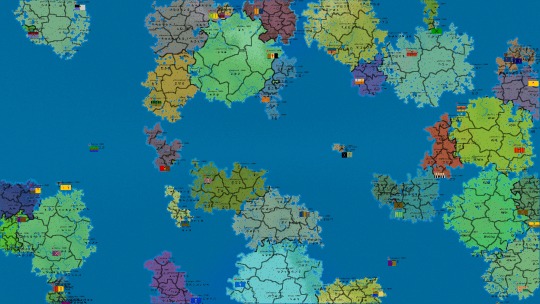
Hello, world!
I’m working on a new game! I’ve been thinking about a nebulous collection of systems, mechanics, and concepts for a game called Citizen since my last year of high school. I started working on it during my summer before university started, but I gassed out after a couple of months due to technical obstacles and abandoned it. It was the latest in a long line of indie projects that I didn’t finish. Here I am two years later with two years of a world-class undergraduate computer science education under my belt thus far, and I think it’s time to revisit the idea with what I have learned since my last attempt. I decided to write a game development blog, 1) because I love sharing milestones and features that I find cool, and 2) in order to keep myself accountable to the project. Anyway, that aside, let me get to the good stuff!
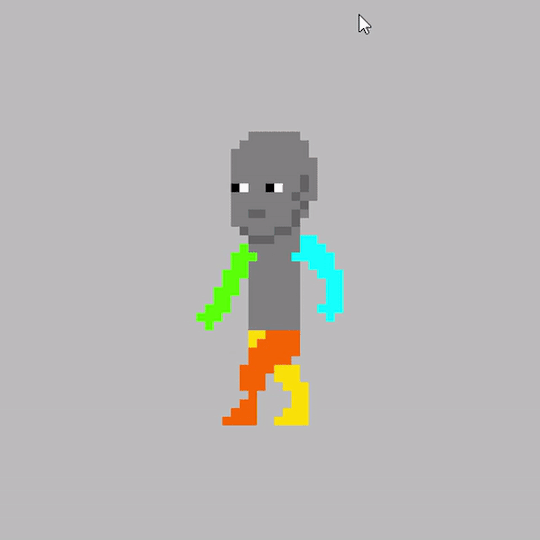
Test walk cycle animation (colors used to discern limbs)
What is Citizen?
I would describe Citizen as a 2D top-down simulation-RPG.
The picture above isn’t the game interface, it’s a test rendering of a game world. The core concept that inspired Citizen was born of my frustration with a lot of games that I otherwise love. To me, there is nothing more immersion-breaking in games than the idea that NPCs (non-player characters) exist and act only in relation to the player. So, I set out to make a game where “the NPCs’ potential to impact the world is the same as the player.”
I also wanted to combine some of my peripheral academic interests into a game and create rich systems to support them, chiefly linguistics, anthropology, psychology, history, genealogy, politics, and philosophy.
Simply put, Citizen is about people. You, the player, are merely one person in a world. You are born into a country which has its own rich culture, language, traditions, attire, and native populations. Practically everything in the game is simulated. The physical geography of the world, the states, the ruling structure of each state (whether feudalism, despotism, or a parliamentary democracy, or a myriad of others), the skin color of the world’s races, the fauna, the weaponry each culture has developed, etc. Even writing systems are randomly generated (I’ll show off some screenshots later in this post). In addition, all of these features are dynamic. A vassal settlement of the capital in a state can rebel due to heavy taxation or famine and secede from the state it belonged to. An animal can be hunted to extinction. A state can be conquered and their language can be transliterated into the script of the colonizers’ native language. Features like this are inspired by real-world events in areas of academia that I find interesting. (An example would be the Hindi-Urdu split as standard registers of the Hindustani language).
Development Progress
This is the first blog milestone, and I have started the blog quite early in the development process. So far, I have only developed a handful of skeletal systems for world generation, culture generation, language, writing system generation, and vexillology (flags). I am currently working on the basics of spriting, animating, and rendering entities.
Feature Showcase
LANGUAGES
Currently, languages in Citizen have four components: phonology (the sounds used), writing system, vocabulary, and grammar, which is currently a stub. Words are represented as an array of syllables, and a syllable is an optional prefix consonant, a vowel, and an optional suffix consonant. The game has a semantic dictionary of “meanings,” and for each language, a word is generated and mapped to one of the meanings. Each meaning has a complexity, starting from 0 and increasing. An atomic idea, one that cannot be divided further, has a complexity of 0. Words that have higher complexities and contain ideas with lower complexities then have a chance of being generated as compound words. For example, boy has a complexity of 1. It contains the ideas of youth, male, and human, all complexity 0. Thus, in a given language, if young is zelkra, male is tro, and human is hefri, there is a chance that boy is zelkratrohefri, or some other permutation of its components. Additionally, there is also a chance that it is assigned to an original word.
WRITING SYSTEMS

Four words written in example script 1; handwriting.

Four words written in example script 2; handwriting.

Four words written in example script 3; handwriting.
This handwriting is just an aesthetic test, it was produced by an algorithm I designed based on the properties of each glyph. The three writing systems featured here are all simple non-featural alphabets.
Without getting into too much technical detail, the writing system generator currently supports non-featural alphabets, block alphabets (think Hangul), and syllabaries. I would like to add featural ones and abugidas and abjads as well, but it’s not a priority.
The primary goals in designing this system were that a writing system should be distinct and have its own character, as well as each glyph being distinct and legible within a given writing system.
A writing system is produced with a randomized series of variables, including:
Average line curvature
Maximum curvature deviation
Curvature deviation probability
Average line length
Next line in glyph connected to previous probability
Common element set (think left stem in D P B R H ...)
Start point set
Glyph start from start point probability
...
This extensive list of constants that are uniquely generated to each writing system as it generates its glyphs give each writing system a unique aesthetic and the glyphs a consistent look while retaining distinction.
Vexillography
Flags, nothing complicated here!
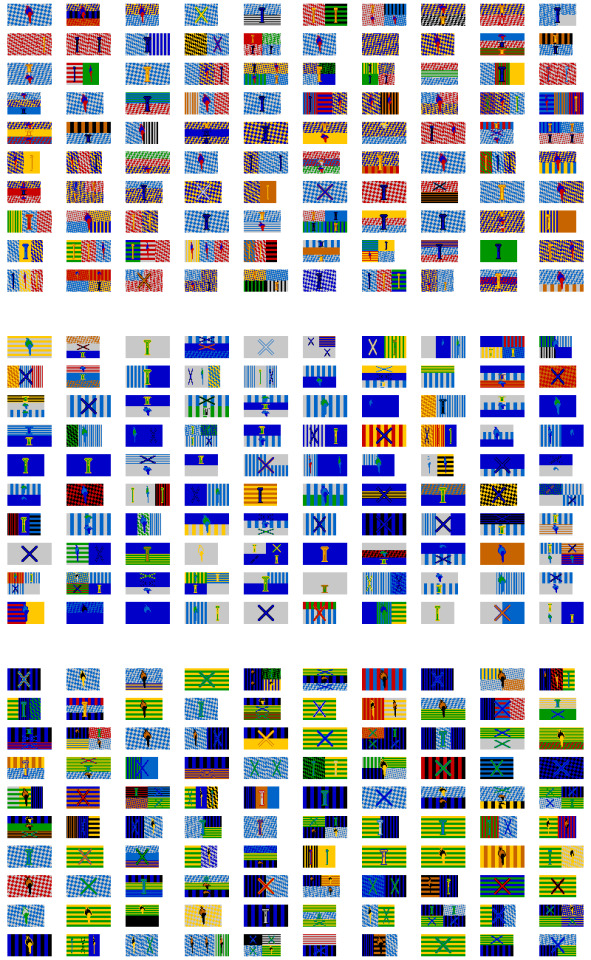
These flags are separated into three chunks. Flags in Citizen are generated by passing a culture into the generator. Each culture has its own heraldic devices and colors. They can generate flags with patterns and colors not endemic to their culture, but oftentimes, flags will feature cultural heritage. This is why the three flag sections look markedly unique. Flags have a configuration, whether simple, halved horizontally or vertically, tricolor, or quartered. Each section of the flag has a pattern, whether simple, striped, or lozenges at the moment. Then, the flag has a symbol layer. There can either be a symbol for the whole flag that is imposed on the center, or a symbol or each pattern in the flag’s configuration. There can also be no symbol at all.
Right now, there are three placeholder symbols, with more to be added later. Obviously, animals feature heavily in heraldry. Since animals in the game are planned to be randomly generated, (ambitious, but possible) I want to randomly generate heraldic symbols based on the animals in that world instance as well.
The vexillography system was inspired by Catalan-speaking regions of Spain: Catalonia, Valencia Community, and the Balearic Islands. Each of these features the flag Crown of Aragon in their own flag. The Crown of Aragon flag has become a symbol of the Catalan language as a result.
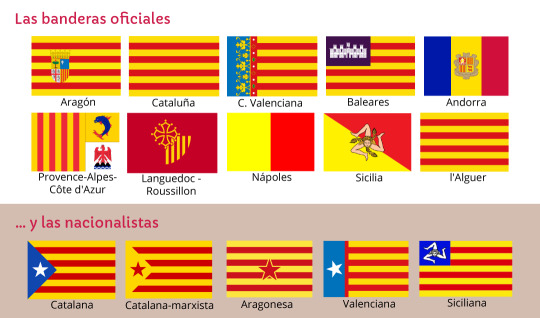
What’s next?
I plan to spend the next few weeks on efficiently implementing sprites, animations, and tilemaps for people in an extensible way that works beautifully with the variety of people’s appearances in the game.
Let me know what you think and stay posted for more!
- Jordan
1 note
·
View note
Text
[App Review]—LingoDeer (Japanese)
**EDIT** The LingoDeer team read my review and fixed some of the things I pointed out :>
Learning Japanese?? I was originally going to review LingoDeer’s Chinese lessons next, but I was contacted by the team who developed the app and the lessons after the read my review on the Korean course. They asked if I was learning Japanese and, if so, if I could do a similar review for the Japanese course (please note that I have never done any sort of sponsored review or anything like that; I review what I want and I review them honestly). I said I would, so here we are! Maybe this will get me back on track with studying Japanese, anyway. Those of you who were around during this blog’s early stages will remember I was studying Japanese for a while, but I had to abandon it because I just didn’t have enough time ㅠㅠ Welp, it’s time to start again!
I do want to note that, other than the obvious language difference between this review and my review of LingoDeer’s Korean course, there is also a huge difference in my perspective between both of these reviews. Having studied Korean for over seven years now, my LingoDeer Korean review was done more from a been-there-done-that perspective. A lot of my intuition as not only a long-term Korean learner but also a Korean grammar blogger and a language teacher went into it. However, I am nowhere near the same level in Japanese, so this review is written from much more of a beginning learner perspective, with a bit of my teacher brain as far as what is and isn’t effective for language learning thrown in.
Now that I’ve gotten that out of the way, let’s jump on in!

What is LingoDeer?
LingoDeer is a language-learning app for the three major east Asian languages, Korean, Mandarin Chinese, and Japanese. It is developed by teachers of those three languages, so that’s pretty cool!
Very first impressions
As I said in my review of LingoDeer (Korean), the LingoDeer app’s design and interface is very clean and visually appealing. I do get some loading screens still, but none of them are super long unless I’m on my home Wifi. I’d been thinking about maybe getting a new, stronger router anyway...
Learning Hiragana and Katakana
You can start with learning Hiragana and Katakana, or you can just skip it and go straight to learning the actual grammar and other material. For the sake of this review (and since my Katakana memory has always been pretty bad), I did the Hiragana and Katakana courses. Before you start a level in the Alphabet section, you can flip a toggle for whether you want to learn Hiragana or Katakana. Ultimately, though, it doesn’t really matter since they are presented together and you will be asked to match the corresponding Hiragana and Katakana. I have actually never used a source that teaches them together in this way, and I really like it because it made it easier for me to remember the Katakana. The main differences between doing one writing system vs. the other (for example, choosing to do them in Katakana mode instead of Hiragana) is that you will only be presented with stroke order diagrams for the set you chose, and they will occur more frequently. At the end of the day, the choice is yours.
Again, the sound files in this app are really great, so you can hear the sounds very clearly. My only real issue with the Hiragana/Katakana-learning exercises is when you have to match multiple pairs at once. There are a few screens like that at the end of each level, and if you want to hear the readout of the sounds as you do them, you have to flip a toggle on the screen because the sound is off by default. Since this is a language learning app, I really think it would make more sense to have the sound on by default. Also, you have to flip the toggle every new screen rather than flipping it once and that being your setting for the level. Having to flip it every single time just to get the automatic audio got annoying pretty quickly.
Just as the Korean course had extensive Hangul charts, there are interactive Hiragana and Katakana charts in the Japanese course. You can click on the individual spaces to have the sounds read out, which I liked. However, there seems to be a little bug such that sometimes when I go to the charts they don’t read out when I press the spaces. In those cases, I have to restart the app for the charts to work properly.
Finally, there are notes explaining the Japanese writing system, and they’re quite extensive! This app certainly does give a lot of information.
Getting in to learning
This app is currently structured 100% for beginners in the sense that you must start with the first level. There is no way to test up into a higher level. This test up feature is there in other comparable apps, so its absence here is very noticeable. Until such a function is (hopefully) added in, anyone who wants to use this app will have to obligatorily do the lower levels first regardless of their skill level.
All of the actual learning levels have grammar notes at the beginning, which you can access if you swipe to the tile left of the first lesson tile. I think it would make more sense to have the notes tile be the first one you see, as it is easy to miss and the notes give a ton of important information that beginning learners really should read. The notes are detailed and very helpful, but there are some typos here and there, and I noticed some unusual Romaji (though I’m not sure if it’s just that they were using a different Romaji system... are there multiple Romaji systems??). The word for “China,” which I had always seen before in Romaji as “ch(y)uugoku,” was written as “tyuugoku,” which threw me off.
When you get into the learning levels, you can choose how you want writing to be displayed, and there are a TON of options! You can go for full on normal Japanese writing with the Kanji and all, Kanji with Hiragana (my setting), Hiragana only, Romaji only, Hiragana and Romaji... you can choose what would suit your needs best and adjust as you become more comfortable reading Japanese.
As for actually learning, there is a variety of activities including word-picture matching, listening and choosing the right answer, inserting grammatical elements into the right places, and unscrambling sentences, and more. The only thing that I really wish the learning levels has is some speaking practice! I’ve said it many, many times before, but HelloChinese is a similarly structured app that has speaking practice built into all of its levels. If LingoDeer also had it, I would be so happy~ Also, as I mentioned in my LingoDeer (Korean) review, this app is fairly quiet in the sense that it does not automatically read out sentences for you on some screens, and there is no indication given that you can access audio for those screens. It would be nice if there was maybe a little play button to make it clear that you can hear audio on those screens with no auto play, or maybe an overall option (that could be toggled on or off as you please, of course) for automatic audio playback.
One other little bone I have to pick is that, when doing syllable-by-syllable unscrambling of sentences, the app starts indicating what the first syllable you pick should be within about three seconds. Maybe some people like the hints, but I could do without them for sure. I would be happy if the time to hinting was increased, or if there was a toggle to turn it off completely.
Upon completion of a level, you can get up to five stars. When you first start studying, you set a goal for how many stars you want to get each day, and if you choose the lowest possible number (five) and do a single level perfectly, your study for the day is complete.
The biggest error I have seen in this course so far is that the notes in the “Household” section (as far as I got so far) are missing ㅠㅠ I sent a report in, so hopefully that’s fixed soon. Considering how responsive the LingoDeer team has been to me so far, I’m fairly confident it will be fixed soon.
Overall, I like the structure of the lessons and the pacing. I could definitely see myself using this app long term!
Review and stats
(This section is more or less copypasta from my previous review, so feel free to skip it if you read that one!)
If you want to go back and review vocab or grammar flashcards, there is a section where you can do that. The review questions are the same as the regular level questions. You can choose to do a single lesson, or you can combine lessons for a comprehensive review. Also, there is spaced repetition listening practice, which is pretty cool. You can choose how you want the words and sentences presented, with Japanese, the English translation, or just the audio and no writing. After listening, you can reveal the correct answer and rate your recall/performance “weak,” “good,” or “perfect.” You can also choose if you want a word or sentence-focused review. Seems like a good feature.
As for stats, you can check how long your learning streak has been ongoing, and it even tells you how long you have studied for. There are some little achievement badges for things like learning time and streaks also. You can also set a time for reminders to study if you would like. However, I notice that the app is not synced to your phone’s clock but some other clock, perhaps that of the server it’s hosted on. So, for example, if I use the app in the morning here in Korea, it will still count any stars I get to the previous day since the app’s date hasn’t rolled over yet. There is not an option to change the app’s clock to sync to your time zone as far as I can tell.
Oh, and there is offline learning! You can download the course take it with you if you are, say, going on a flight or off to some remote area where there is no internet or cell service!
Conclusion
LingoDeer’s Japanese course is really fun and easy to use! The grammar notes are very informative, and the lessons are not too heavy so they don’t feel burdensome or intimidating to a new learner. The pros and cons:
PROS:
GREAT audio files
Lots of good notes and information on grammar
Spaced repetition practice and flashcards
Study reminders
Lessons that are informative and useful without being overwhelming
Offline learning
CONS:
No function to test out of lower levels
Typos in notes and other places
App clock not synced to phone clock
No speaking practice
769 notes
·
View notes
Note
Hi! I was wondering if you could give some tips on learning korean? I have learnt the alphabet but i don't really know how to continue now... Do you have any tips for this? (I know you say you're a beginner but let's be real you know more than i do) Thank you!
Hi anon~! Thank you for your question!
I assume there are more people who have this question, so this will be a long post. Please do keep in mind that I am not an expert in learning languages or Korean for that matter, and I learn languages as a hobby so these will just be my personal tips and recommentations!
Where to start?
So as you mentioned you already taught yourself Hangul, the Korean alphabet. To those just starting out I would recommend starting with Hangul as you did, because many have said it before me, but I will say it again: learning Korean through romanized text only is very difficult. You will sabotage your own progress by doing this, because romanization of Korean is very variable and confusing at times. Please take a couple of hours in your first week to fully master reading and writing the script before you continue learning. It will help you a lot!!
Together with this you’ll want to work on pronunciation. Don’t worry or feel bad when it doesn’t sound well the first few times. Just keep trying. I recommend listening (see a little further down for some resources): pausing after sentences and repeating them. Imitation after all is one of the most important ways in which a human learns!
When it comes to theory, I think it’s best to follow online courses or buy textbooks that fit to your way of learning. You can also learn from separate resources but generally books/websites have a set order in which you learn things - and these orders are there because you need to know certain things before you can understand other things, so I recommend you just follow a series of lessons.
Online Theory Resources
I personally use the website howtostudykorean.com. It is completely free (except for the PDF files and exercise books, which go for a couple dollars a piece - which is still cheap AF tbh) and I really like the way and extend in which concepts are explained. The concepts are explained in such a way that you always understand WHY a piece of grammar works in the way it does, which I think is one of its strong points. I strongly recommend this website for learning Korean and I personally feel like this site as pretty much everything you need to get a good theoretical grasp. It starts on complete beginner level and extends out to hanja lessons even, so 10/10 points to them.
I have also tried Talk To Me In Korean (TTMIK) which seems to be really popular amongst most Korean learners but personally, I think the concepts aren’t explained very thoroughly and the way they explain the material makes me feel like a small child. BUT I am really positive about their YouTube channel so make sure to check that out!
Talking about YouTube, there are loads of interesting channels that can help you out! Some of my personal favorites are the TTMIK channel and the ever-sweet and funny Korean Unnie!
I think these are the most popular websites for learning Korean and I am about 99,99% sure that you won't need any textbooks if you use these, really.
Tumblr is also a really nice source of vocabulary lists andpeer-teached grammar lessons, and there is also a nice amount ofcultural lessons if you search good enough. Do pay attention though,because these types of materials are more likely to contain mistakesor typos. Besides that Tumblr is a really nice community to come intocontact with lots of other (Korean) language learners!
So. Besides getting your share of theory you will need practice. Especially if you don't live amongst Koreans (which I assume you don't) you will need to fill that up. How do we do that?
Listening
For practicing listening there are a couple things you can do.
Listen to Korean radio and/or K-pop
Korean radio is a good source of naturally occuring speech. Make sure you put on a station that has a DJ that talks (some stations just play music). You get commentary, interviews, conversations and as a bonus you get to listen to Korean music.
Korean listening exercises
You can find plenty of listening exercises on YouTube. Maybe give these a try:
- Korean Class 101
- TTMIK Listening in Slow Korean series
- TTMIK IYAGI - Natural Conversations in 100% Korean
Korean videos/TV/dramas
The internet offers access to loads of Korean video material. You can check out Korean TV programs (Running Man is very popular) or dramas (try Viki.com). Another way I like to incorporate listening practice into my learning is by watching Korean youtubers. The more popular channels are likely to have both English and Korean subs so that might help you out.
Speaking
The best way to learn to speak Korean naturally, fast is of course to talk to Korean speakers. Finding someone to chat with if you have no Korean friends can be somewhat of a challenge. My university organizes monthly 'language cafe's' that bring together students who are learning another language. Try searching for something similar in your own neighborhood. If you really can come into contact with native speakers, I recommend trying apps such as HelloTalk. I personally really like this app and have already earned a new friends because of it. It allows users to come into contact with others who are learning another language, and are willing to teach their own language to others. It is chat based but if you want to, you can also send voice messages or call.
Reading
As someone who doesn't have English as a first language, I canconfirm that reading is one of the best ways to gain proficiency in alanguage. It provides you with lots of vocabulary and makes youfamiliar with sentence structure, grammatical rules and more. Trystarting with simple texts such as children's books and slowly try towork your way up to news articles, short texts and ultimately actual(simple) books. A simple google search quiry will get you to loads ofKorean news pages and downloadable kids' books.
Other tools I use
Website: Naver English Dictionary
Basically the holy grail for Korean language learners. Gives you excellent detailed definitions and translations for both korean-english and english-korean. It also provides you with tons of example sentences, common word combinations, and my personal favorite: V-LIVE subtitles that have the word you searched in them. This function is AMAZING because you get to see how a certain word is being used in real, actual conversations. You can even click a link to go to the original video so you can hear the pronunciation and the context (conversation) in which it was used. Actual gold.
App: Rieul Korean (Android)
My go-to dictionary app. Has a link to four different online dictionaries (DAUM English, Naver English, DAUM Korean and Naver Korean), a vocab lookup section with hanja testing function, a conjugation section, pronunciation section, numbers section and a section on Korean idioms.
App: K'way and Grammar Haja (Android)
Both apps that explain grammar theory. Not recommended for learning but very handy to have as a reference.
App: TOPIK ONE (android)
Lets you take a fake version of the TOPIK I exam. Gives simple feedback. Very handy to keep track of your progress and to practice for the TOPIK exam if you plan to take that.
App: 라디오 한국 FM (Radio Hanguk) (android)
Just a very simple app with a list of Korean radio stations. I like listening to NCT Night Night on SBS Power FM!
These printable handwriting sheets - for giving your handwriting a fancy boost
Tips & Tricks
I like to set devices and applications to Korean to get some more exposure to the language. You can set sites like Google to Korean. The nice thing about this is that you learn new words that are used mostly online such as “닫기” (close) and “구독” (subscribe).
Try keeping a language journal. It is a fun way to bring your knowledge in to practice. I am actually making a post on that right now so keep an eye on my blog if you want to read it!
Get a study buddy. Nothing motivates better than a healthy dose of mutual support and a slight dose of pressure, hehe.
Study regularly, daily if you can. Even if it’s just half an hour a day, try to keep your study sessions consistant. Adapt the amount of time you put into the language based on your schedule and the goals you want to achieve. Want to keep up a decent conversation within a year? Plan on at least 8 hours a week.
Posts by others
List of free Korean resources by @onestopkorean
Nice lil’ list of resources by @elkstudies
I probably forgot to mention a TON of stuff but I hope this will help you on your way~! Lots of success and happy studying! 열심히 공부 하자!
20 notes
·
View notes
Text
The UI/UX Hunt

This past week was primarily pursuit of game design, some legal email work, and a serious hunt for a UI/UX designer. The original plan was to iterate on game design! A little of that happened, but mostly it turned into realizing the importance of UI to addressing that, handling other project fires, and sending a lot of emails.

First draft of a questionnaire, not yet in use.
Game Design Iteration
The biggest issue right now in gameplay is players not getting deep enough. Conditions aren’t right for players to feel vulnerable, but we want to understand if this is a solvable problem still or not. We can’t violate the privacy of the playtest - watching or participating would distort sessions - but we need to understand where the issue is coming from. Our new approach now is more targeted questions after the test. Did players go deep? Why or why not? What would have helped? Players are sympathetic to this and volunteer non-confidential information. We will see if iterating on this feedback actually leads to good changes or not, as their perspective brings a bias, but without an ethical violation or disturbing their privacy, there doesn’t seem to be another solution.

Iconography drafts (like the title image) for faster reads of new concepts / info.
UX Pitch Refinement
To better encourage concepts of vulnerability, this week also involved a pass at UI icons. A playtest later indicated that these may have been unnecessary (the issue of going deep was not a misunderstanding of the rules, but a comfort level), but it’s always nice for the player to have an easier way to learn the rules. This was part of the UI / UX pitch process refinement too, as we got closer to a clearer goal of what art direction and needs we were asking for. Which of course led to reaching out to more artists...

The horror...
Emailing / Messaging Strangers
Contacting strangers is always hard, especially when you have a request or objective. My findings: Just be a normal person! Respect their position, understand their interests, and then ask for what you want. Implementing those is hard (you have to understand their context, listen to their needs, and then be bold enough to ask) but it’s totally worth it. At the least, it gives you a chance that you’d totally miss otherwise. No new artists were gained this week, but some great back and forth and potential long term connections happened even so.

Photo from Glitch City LA
New Workplace
No more libraries! Glitch City has a new location, and I am once again working out of it. Having a workplace like this brings invisible value in 1) stability, 2) privacy/security, and 3) resources like stable internet and consistent access to a desk. A community like this is also great for meeting new people - whether those are mutual industry connections, playtesters, or game developers and the fun of seeing their works too. It’s nice to have somewhere stable and good to go once again.

The bibimbap at the new location is great, and I’m practicing tons of hangul!
Conclusion
Iteration is good! And while good UI is key to players quickly understanding a game, understanding the real needs through playtests is more important. Emails are also a big invisible timesink (as writing blogposts can be too...) but these core elements are key to a strong development process. Basic communication and scheduling skills will always be invaluable in game development - programming and art are great, but a finished game is worth even more.
9/25/19
0 notes
Photo

Korean Writing Practice Notebook
Blank Hangul Manuscript Wongoji Paper For Korean Language Handwriting Practice
This Korean Writing Practice Notebook is a great choice for practicing Korean handwriting if you are learning Korean or preparing for the Topik test. There are 120 pages of Hangul Manuscript Papers, also known as Wongoji Papers. The pages are designed similarly to real Topik test papers. Therefore, this notebook will be useful for anyone who starts working on your Korean essay writing skills
A wonderful present for family and friends who learning Korean handwriting or preparing for Topik Test.
Product Details
Total 120 pages of Wongoji papers.
White Paper
Matte Finish Cover
Available Here
#korean language#korean vocabulary#learning korean#korean hangul#korean writing practice#korean study notes#korean stationery#korean notebook#topik test
1 note
·
View note
Text
I was at my dad’s house for like 24 hours so I downloaded Duolingo and spent the entire time doing that. Do you know how easy learning Romance languages seems after spending years studying Japanese?! I’ll be speaking Spanish and French in like a month, try me.
I’m also starting on Korean... which I hear has very similar grammar to Japanese. I find the phonology tricky though. But hangul is gonna be real easy to learn.
I did the Duolingo placement test for Japanese and it put me at the weather and food lessons. Weather terms were the first Japanese words I learned in school, so come on. Also some of the problems are unexpectedly difficult because they use kanji very sparsely so when I see kana I think it is a grammatical element. If you want to become proficient in Japanese you might as well get started picking up kanji asap. I keep mixing up 月 and 日 though so what do i know.
I also started on Swahili but I’m not going to focus on it for awhile, I think French, Spanish, and Korean are enough, with the bulk of my language time spent on Japanese. Right now I’m mostly trying to improve my listening.
3 notes
·
View notes
Photo

hello! i’m self-studying korean, so i know the struggle of trying to find legit resources, especially if you’re on a budget. i’ve tested and used all of these, so i can confirm they’re not scams! best of all, every single thing on this list is free.
sites:
korean from zero: though the workbook costs about 20 american dollars on amazon, the online course is completely free! i own the book, and the information on the online course is the exact same as the information in the book. there’s even a free pdf of the book on the site if you feel like printing it out yourself. this was how i got a kickstart on learning and practicing hangul. i don’t love how the chapters are laid out (i prefer learning grammar before phrases) but i really like this site overall!
coursera korean: helpful for visual/auditory learners! i have trouble sitting through video lectures, but if you are the type of person who learns well through lectures, this could definitely work for you. it’s completely free. there’s also another course on the same site by yonsei university which you’re supposed to take after this course. it’s great speaking practice. the downside is that there’s very little written work so it’s hard to retain information. i use it as a review after i learn something from one of my workbooks.
also from coursera: hangul chart. if you’re unsure how to pronounce certain combos of hangul, this is a really good resource.
living language: again, the book costs money (i got the entire box set for under thirty dollars on amazon b/c it was on discount) but the entire course is available online! i haven’t explored this as much or used the books a lot because i don’t like how much romanization is used at first, but the flashcards in the living language lab are really helpful.
then there’s the obvious sites like hinative, where you can ask native speakers questions and post audio of you speakings so they can correct your pronunciation. it’s so gratifying when a native speaker marks your speaking as “natural”.
apps:
hangul punch: i love this app so much!!! the design is.... lacking (it’s built for children, i think), but it helped me get much faster at reading hangul. you can also learn vocab words while you read hangul. i’m a competitive person, so having it in a game format is super helpful. it’s good to use when you’re waiting in line, using the bathroom, in the car, whatever.
eggbun korean: i don’t use this that much anymore, but if you’re a busy person, this is a good app to use as an intro to korean in general. i’m not good at focusing for long periods, so the slow pace of the app wasn’t great for me. however, if you feel like you need a tutor but can’t afford one, this app might be good for you, because the “instructor” texts you like a real person. i can’t explain it that well, so you should just try it and see :o it helps you get more comfortable with typing in korean. there’s also fun cultural lessons to help you learn more about korean culture, if you’re planning on visiting korea!
naver dictionary: an absolute must if you’re just beginning to read in korean. it’s described as “the godfather of korean translator apps”
lingq: i just began using this and i’m still not sure how i feel about it. it has a lot of good listening and reading practice, but the interface is confusing and i’m not sure if all of the vocab listed is entirely accurate in its translation. try it and see if it’s suitable for you!
that’s all i’ve got! if you have other free resources, pleasepleaseplease drop me a message, because i’m always on the lookout. good luck and happy studying!!!!
1 note
·
View note
Note
what would you suggest for learning the Korean alphabet/spelling?
This is what I did when I was first learning how to real hangul. First, I remembered all the sounds the characters made (x) and then I tested myself using this flash game (x) and repeated the process everyday :)
53 notes
·
View notes
Text
Talk about an OC, so yeah nothing important
I’m so happy that finally, FINALLY, I’m devolving Kazue. Hell, his fiance, Kiku, got more in-depth development than he did. It hurt me a bit since Kazue was one of the first characters I made for my Drama Club group, next to Sanyuu (now owned by @roni-minton).
I felt bad because, I would forget about him. He was pretty simple. A nice, overly polite guy (parents drilled it into his and his brother’s heads that being respectable and polite should be the most important things when you want to make an impression). With a stunt man for a dad and a nurse for a mom, and an older brother who’s a writer in Akihabara. The only real unique thing was that he has an arranged marriage.
Though now with characters like Koza and even Hotaka getting more development, Kazue fell to the sidelines (Not to mention his name spelling changed several times).
So now Kazue is still his shy, and overly polite self. Though a bit reckless, wanting to follow in his father’s footsteps and become a stuntman; resulting in him having a rather intimidating appearance by the time he gets into high school; bent nose from breaking it a few to many times, three scars on his face (one on his lip, one over an eyebrow, and the last across his nose bridge).
He’s both athletic, and enjoys the arts (ends up joining tennis during middle school while taking drama, and joins basketball in highschool while also preforming at the community theater).
He’s smart, though he has has very poor test taking skills, normally stressing too much and never finishing in time.
And without realizing it, he tends to mix up characters with his writing. He can read it fine but not really noticing that his essay is a jumbled combination of the usual katakana, hiragana, and kanji (it seems to be common in some areas of Japan to do that); but sprinkle in some hangul (learned from his mother who is 1/2 Korean), and devanagari (learned from his fiance).
Yes I know that they all have a very different fluidity to them,but Kazue constantly practices them since he has a mild case of dyslexia. He had himself write the same sentences one after the other in each form eventually having the characters just blur to him. So while learning the three in Japanese he also learned the other two and it seriously is just something he doesn’t realize....
Though, there is one time when he will do it on purpose, Which is once again leading to his poor testing skills. Whenever he’s overly stressed and cannot remember the character for something in one language and just moves to one that he knows.
Kazue is just a dear and I feel so bad that I didn’t take the time to develop him more.
0 notes
Photo


Korean Writing Practice Notebook
Blank Hangul Manuscript Wongoji Paper For Korean Language Handwriting Practice
This Korean Writing Practice Notebook is a great choice for practicing Korean handwriting if you are learning Korean or preparing for the Topik test. There are 120 pages of Hangul Manuscript Papers, also known as Wongoji Papers. The pages are designed similarly to real Topik test papers. Therefore, this notebook will be useful for anyone who starts working on your Korean essay writing skills
A wonderful present for family and friends who learning Korean handwriting or preparing for Topik Test.
Product Details
Total 120 pages of Wongoji papers.
White Paper
Matte Finish Cover
Available Here
#korean language#korean vocabulary#learning korean#korean hangul#hangul#hangul learning#learn korean#study korean#korean writing practice#korean notebook#korean writing practice notebook#korean stationery
1 note
·
View note
Text
[App review] — Duolingo (Korean)
**NOTE** It was brought to my attention that this is a public beta release and the course still sin’t totally complete. I saw no indications of that on the app when I started the course, and I feel that many others will likely start the course not aware that it’s a beta. Anyway, even in light of this information I feel like my criticisms are still valid. Once the course is given a final release, I will go back and do a new review.
The Korean Duolingo is finally out. Korean learners and would-be learners have been going a bit crazy about it ever since... pretty much ever since it was announced! If you happen to hang around the Korean subreddit on Reddit, you would know that posts hyping the Korean Duo come up fairly often. I know a lot of people love Duolingo and have great expectations and high hopes for the Korean Duo. So, how does it do?
Have you ever had that feeling like you know you should feel disappointed but you just feel apathetic instead because you weren’t expecting enough to even be properly disappointed? That’s exactly how I feel about the Korean Duo. I had played around with the Japanese Duo and found a few errors and oddities and just a lack of good information about the grammar, to the point that if I hadn’t already had a little background in the language, I probably would have given up far longer before I did. I was expecting a similar outcome for the Korean Duo, but at the same time I really was hoping for the best because, while the amount of Korean learning resources available is increasing, there still just isn’t that much quality material out there. Korean Duo, unfortunately, is not quality material.
I’m just going to take you with me step-by-step through the first few levels (I’m writing this review as I go through them, though I will likely add in little notes and edits when I do my final post clean-up) so you can see what problems cropped up.
Learning Hangul
From the very starting stages, learning Hangul, it fails the learner. First of all, it uses romanization when it could very well just do a sound-symbol pairing... but I won’t waste space here complaining about why romanization is awful when I’ve already done that recently. From the beginning, there is no indication that Korean’s writing system, Hangul, is alphabetic. Instead, it gives you full syllables and you’re supposed to just intuit that there’s a certain formula to building those syllables because they sure don’t let you know. The way they present Hangul makes Korean look like it uses a syllabic writing system rather than an alphabetic one, and as I poked through the levels, I could just imagine some total Korean newbie writing every last syllable down with the romanization to try to remember them individually when they could learn Hangul a lot more efficiently in other ways. Also, some of the syllables that they gave, since they insisted on teaching Hangul with full syllables, could have been taught as vocab in their own right (꽃 flower is one example) but instead, it just had you matching “꽃” with romanization instead of connecting it to something meaningful :/
Another thing I didn’t like in the Hangul-learning levels (and just in general) was the awful robotic voice. If you want to teach people how to speak a language so they can, in theory, then go out and use it with other real humans, please use a real human voice for your recording! Especially in the Hangul-”learning” section, some of the vowels of the syllables sound really bad, and in general stringing sound files of words being read in isolation (once you get to making sentences) is not good when you want to approximate how people actually speak. Some of the sentences aren’t completely awful, but they’re still pretty awkward.
Picking up some words
Let’s move on... your first few words are “milk, child, raincoat, and doughnut” and then you get into this weird loanwords section. Maybe Duolinguo got some sponsorship or corporate backing, because after the four words previously mentioned, your next words are “Starbucks, McDonald’s, Samsung, and Hyundai” :] Never mind that the proper English translations “Samsung” and “Hyundai” don’t match the romanization that they just had you using to pair syllables with...?? So I can see a new learner getting confused about why “Samsung” isn’t 삼숭 and why “Hyundai” isn’t 현다이. The next section does give you more useful words, but I’m wondering why they didn’t just start with those in the first place.
First sentences
Once you get out of all the Hangul-”learning” parts, you start with basics, which is simple “X is Y” sentences. They start with 하십시오체, which I will give them props for, but there is no mention of formality levels at all. Also, there is no explanation at all of the nature, usage, and meaning of particles... and they drop a lot of particles in Basics 1 and 2, including -이/가, -은/는, -와/과, and -에. Does something so vital to Korean grammar not deserve teaching? And there is no explanation of 이다 either—you are just given 입니다 as an attachment to nouns to remember that way. I suppose it does fall in line with Duolinguo’s method of just giving you chunks to learn, but that’s not an effective way to learn them at all, especially -이/가 vs -은/는.
Common Phrases
On to Common Phrases... and suddenly we have both 하요체 and 해체/반말 mixed in with 하십시오체??? I had three questions in a row that went from “안녕하세요! 만나서 반갑습니다” to “환영합니다” to “고마워.” No explanation of formality levels, AGAIN. They do introduce 고맙습니다 in the same level but there’s no actual explanation of the importance of keeping your formality levels in check.
Verdict
This is all the material covered up to the first checkpoint. Over the next few days I’ll work ahead more and maybe write a bit more on this, but I just wanted to test the first few levels to see if it provides a decent base for beginners to the Korean language. It falls far short of that, and I wouldn’t recommend that anyone with a serious interest in learning Korean use this as their starting point (if at all). Sorry, Duolingo!
I’ll leave you with what (I think?) was an attempt by the developers to be witty that just didn’t make it there.

Happy studying (just not with Korean Duo, please!)~
#studyblr#langblr#korean studyblr#korean langblr#please do not use this#app review#please don't#duolingo#korean duolingo
246 notes
·
View notes